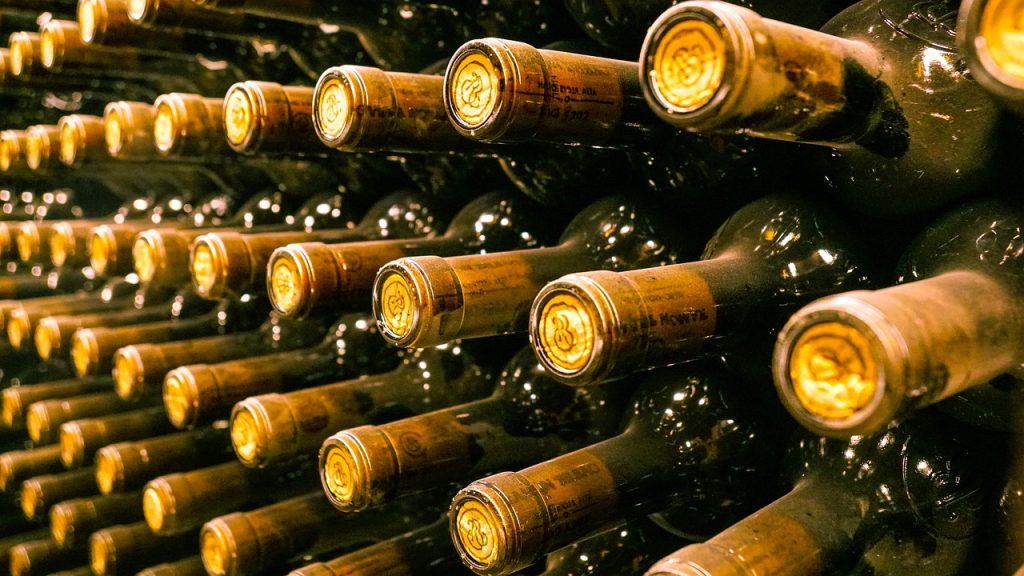Alicante, a jewel in the crown of Spain's Valencian Community, is renowned not only for its picturesque beaches and vibrant festivals but also for its robust wine culture. Nestled between the mountains and the Mediterranean, the Alicante province offers a unique viticultural environment that produces some of Spain's most distinctive wines. This guide will explore the best wineries to visit, the types of wines you can expect to find, and tips for making the most of your wine tasting experience in this sun-drenched region.
Understanding Alicante's Wine Heritage
The history of winemaking in Alicante is as old as the Roman occupation of the Iberian Peninsula, with a significant boost in the Middle Ages due to the patronage of the Catholic Monarchs. The region's winemaking was primarily for local consumption until the late 19th and early 20th centuries when it began to gain recognition on the international stage.
Today, Alicante is known for its diverse range of wines, from the light and aromatic white wines to the deep, complex reds. The region benefits from a Mediterranean climate, characterized by hot summers and mild winters, which is ideal for grape cultivation. The soil varies from sandy coastal areas to rocky mountainous zones, each imparting unique qualities to the grapes grown there.
Key Wine Varieties in Alicante
Alicante's wines are primarily defined by their native grape varieties, which include:
1. Monastrell: This is the flagship red grape of Alicante, known elsewhere as Mourvèdre. Wines made from Monastrell are typically rich and full-bodied, with flavors of blackberry, plum, and spice, often aged in oak to add complexity.
2. Moscatel: Used for both sweet and dry white wines, Moscatel grapes thrive in Alicante's coastal areas. These wines are aromatic, often exhibiting floral and citrus notes, with a lush, fruity palate.
3. Garnacha Tintorera: Known for its deep color and robust tannins, this grape is often blended with Monastrell to produce structured and powerful reds
Besides these, international varieties such as Chardonnay, Merlot, and Cabernet Sauvignon have also adapted well to Alicante's terroir, producing wines that are both unique and internationally appealing.
Must-Visit Wineries in Alicante
To truly appreciate Alicante's viniculture, visiting local wineries is a must. Here are a few recommended destinations:
1. Bodegas Enrique Mendoza: Located near the coastal town of Alfaz del Pi, Bodegas Enrique Mendoza is renowned for its meticulous vineyard management and sustainable practices. Their Peñón de Ifach wine is a must-try.
2. Bodegas Gutierrez de la Vega: In the quaint village of Parcent, this winery is famous for its sweet wines made from the Moscatel grape. Their Casta Diva Cosecha Miel is an exquisite example of Alicante's dessert wines.
3. Bodega El Sequé: Nestled in the interior town of Pinoso, El Sequé is a modern winery focusing on Monastrell. Their wines showcase the grape's full potential, balancing power with elegance.
Tips for Wine Tasting in Alicante
When visiting Alicante for wine tasting, keep the following tips in mind to enhance your experience:
Seasonal Considerations: Spring and autumn are ideal for wine touring, as the weather is pleasant and the landscapes are at their most picturesque. Summer can be very hot, especially inland, so plan accordingly.
Wine Tours and Tastings: Many wineries offer guided tours and tastings, which often need to be booked in advance. These tours can provide insights into the wine-making process and the history of the estate.
Local Pairings: Alicante's cuisine complements its wines beautifully. Try local dishes such as arroz a banda (rice cooked in fish stock) or turrón (a sweet almond nougat), which pairs wonderfully with Moscatel.
Travel Arrangements: Consider hiring a car or joining a wine tour group to safely navigate between wineries. Some areas may be remote and difficult to access via public transport.
Final Thoughts
Wine tasting in Alicante is more than just sampling exquisite wines; it's an immersive cultural experience that offers insight into the region's history, cuisine, and artisanal traditions. Whether you are a seasoned connoisseur or a curious novice, Alicante's wineries promise a captivating journey through the senses, steeped in the flavors and stories of this enchanting Spanish province.
Frequently Asked Questions (FAQs)
What is the best time of year to visit wineries in Alicante?
The optimal time to explore Alicante's wineries is during the spring or autumn months, as the weather is mild and the vineyards are in full bloom or harvest, respectively
Which grape varieties are typical in Alicante?
Alicante is famous for its Monastrell, Moscatel, and Garnacha Tintorera grapes. These varieties are integral to the region's distinctive red and white wines
Are there any wineries near Alicante that offer wine-tasting tours?
Yes, many wineries near Alicante, such as Bodegas Enrique Mendoza, Bodegas Gutierrez de la Vega, and Bodega El Sequé, offer guided tours and tastings. Booking in advance is recommended
Can I pair local food with Alicante wines during my visit?
Absolutely! Local dishes like arroz a banda or turrón pair wonderfully with Alicante's wines, enhancing both the culinary and wine-tasting experience
Do I need to rent a car to visit Alicante's wineries?
While public transport options are available, renting a car is advisable for convenience and flexibility when visiting multiple wineries, especially those in more remote locations
